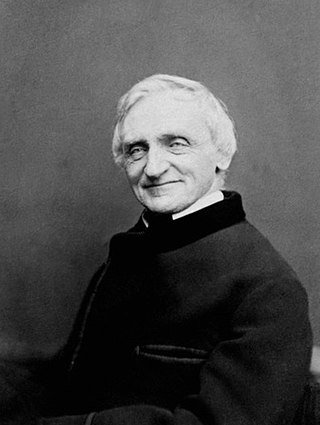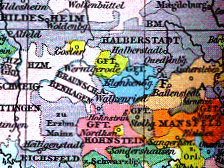
Albert was King of Saxony from 29 October 1873 until his death in 1902.

"God Save the King" is the de facto national anthem of the United Kingdom, one of two national anthems of New Zealand, and the royal anthem of the Isle of Man, Canada and some other Commonwealth realms. The author of the tune is unknown and it may originate in plainchant, but an attribution to the composer John Bull has sometimes been made.

Saxony, officially the Free State of Saxony, is a landlocked state of Germany, bordering the states of Brandenburg, Saxony-Anhalt, Thuringia, and Bavaria, as well as the countries of Poland and the Czech Republic. Its capital is Dresden, and its largest city is Leipzig. Saxony is the tenth largest of Germany's sixteen states, with an area of 18,413 square kilometres (7,109 sq mi), and the sixth most populous, with more than 4 million inhabitants.

"Gott erhalte Franz den Kaiser", also called the "Kaiserhymne", was a personal anthem to Francis II, Emperor of the Holy Roman Empire and later of the Austrian Empire, with lyrics by Lorenz Leopold Haschka (1749–1827) and music by Joseph Haydn.

John was King of Saxony from 9 August 1854 until his death in 1873. He was a member of the House of Wettin. During his reign, Saxony became a part of the German Empire.
The "Badonviller-Marsch" is a Bavarian military march by composer Georg Fürst (1870–1936). After 1934, with its name Germanized to "Badenweiler Marsch" by the Nazis, it was used as the official march of Hitler in his role as Führer, to signal his arrival and therefore personal presence at public events.
The state of Prussia developed from the State of the Teutonic Order. The original flag of the Teutonic Knights had been a black cross on a white flag. Emperor Frederick II in 1229 granted them the right to use the black Eagle of the Holy Roman Empire. This "Prussian Eagle" remained the coats of arms of the successive Prussian states until 1947.
Dieter Trautwein was a German Protestant theologian and writer of numerous Christian hymns of the genre Neues Geistliches Lied (NGL).

The County of Blankenburg was a state of the Holy Roman Empire. Its capital was Blankenburg, it was located in and near the Harz mountains.

Siegfried August Mahlmann was a German poet and editor.

Johann Sebastian Bach composed the church cantata Nimm von uns, Herr, du treuer Gott, BWV 101, in Leipzig for the tenth Sunday after Trinity and first performed it on 13 August 1724. It is based on the seven stanzas of the hymn of the same name by Martin Moller (1584), which is sung to the tune of "Vater unser im Himmelreich", Luther's metred paraphrase of the Lord's Prayer. The tune is featured prominently in six of the work's seven movements.
The 137th Infantry Division was a major fighting formation of the German Army (Wehrmacht). It was created in October 1940, and first saw combat in Operation Barbarossa as part of Army Group Centre. The division remained on the central sector of the Eastern Front, where it participated in heavy fighting.

My House is the second studio album by German singer Oceana released on July 22, 2012 on Embassy of Music. The song "Endless Summer" served as the official UEFA Euro 2012 anthem.
Vaterlandslied is the name of several patriotic German poems. The most famous one is "Ich bin ein deutsches Mädchen" written by Friedrich Gottlieb Klopstock in 1770 and dedicated to Johanna Elisabeth von Winthem.

Michael Schütz is a German church musician, composer and university lecturer. He is especially dedicated to the connecting traditional musical styles with pop music styles, for songs of the genre Neues Geistliches Lied.
Johann Peter Ritter was a German composer, conductor, chorus master, and cellist born and died in Mannheim, Karlsruhe, Baden-Württemberg, Germany). He is best known in the United States for "Sun of My Soul" and "Holy God, We Praise Thy Name."
Christian Johann Christoph Schreiber was a German theologian, philologist, philosopher, and poet. He was also the Superintendent of the dioceses of Lengsfeld and Dermbach. He was connected in friendship or correspondence to writers and philosophers of his time, and published poetry, sermons, historical and philosophical works.
"Segne, Vater, diese Gaben" is a Christian hymn. The authors of text and melody are unknown. It is meant to be sung as a round. The song, which is often used for a prayer before a meal, has appeared in German hymnals and songbooks. It is regarded as a song of the genre Neues Geistliches Lied (NGL), and has been used in schools and events for young people.

Den König segne Gott was, though not officially declared the national anthem, historically assumed the anthem of Saxony.
The 353rd Infantry Division was an infantry division of the German army during World War II.










